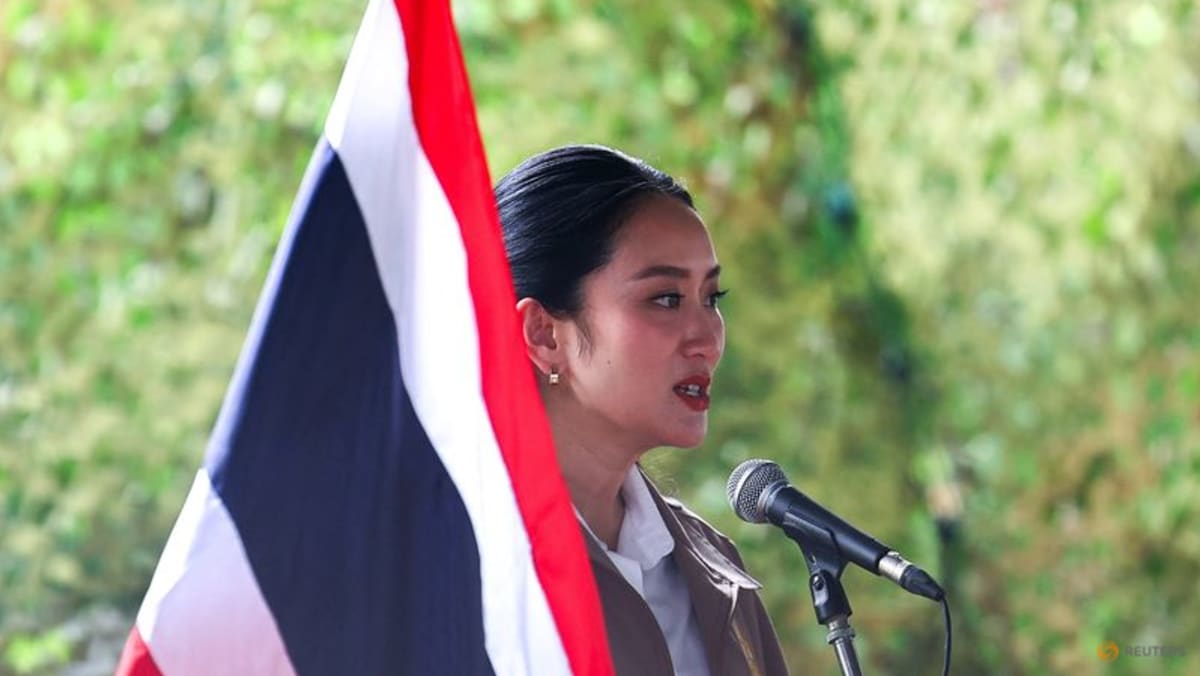Turbulent Waters: Thai Prime Minister Paetongtarn Faces Mounting Pressure Amid Political and Diplomatic Storms

"Turbulent Waters: Thai Prime Minister Paetongtarn Faces Mounting Pressure Amid Political and Diplomatic Storms"
In the heart of Bangkok, a city known for its vibrant chaos and rich history, hundreds of protestors converged on June 28th, their voices rising in unison against the leadership of Prime Minister Paetongtarn Shinawatra. The scene unfolded at the Victory Monument, a symbolic war memorial that now bore witness to a different kind of battle—a political one. This gathering, orchestrated by Uniting the Power of the Land for the Defence of Thai Sovereignty, a coalition of fervent nationalist activists, marked the largest anti-government demonstration since the Pheu Thai party ascended to power in 2024.
The protestors, waving flags and chanting slogans, were not merely expressing dissatisfaction; they were demanding the resignation of the 38-year-old Prime Minister. Paetongtarn, a figure at the center of Thailand's political maelstrom, is grappling with an economy struggling to find its footing and a government coalition that teeters on the brink of collapse. The immediate catalyst for this unrest is a contentious border dispute with Cambodia, a diplomatic quagmire that has fueled nationalist fervor and intensified calls for her ouster.
The echoes of past political turmoil reverberate through the streets of Bangkok. The Shinawatra family, a political dynasty with a storied history, has faced similar uprisings before. While previous protests did not directly topple their governments, they set the stage for judicial interventions and military coups in both 2006 and 2014. The specter of history looms large as Paetongtarn navigates these treacherous waters.
Despite the mounting pressure, Prime Minister Paetongtarn remains outwardly unfazed. "It's a matter of rights," she asserted, emphasizing her commitment to peaceful governance. Yet, beneath this calm exterior lies a precarious political landscape. The recent withdrawal of the Bhumjaithai Party from her coalition has left her with a fragile majority, and the looming threat of a no-confidence vote casts a long shadow over her administration.
The catalyst for Bhumjaithai's departure was a leaked phone conversation between Paetongtarn and Cambodia's former premier, Hun Sen. In this call, Paetongtarn appeared to criticize a Thai army commander, a move fraught with risk in a nation where the military wields considerable influence. Her subsequent apology has done little to quell the storm.
Adding to her woes, a group of senators has petitioned the Constitutional Court and a national anti-graft body to investigate her conduct over the leaked call. The outcomes of these investigations could seal her political fate, potentially leading to her removal from office.
The international dimension of this crisis cannot be overlooked. Hun Sen, once an ally of the Shinawatras, launched an unprecedented verbal assault on Paetongtarn and her family in a lengthy televised speech, calling for a change in Thailand's government. The Thai foreign ministry, taken aback by this "extraordinary" outburst, insists on diplomacy as the path forward in resolving the escalating bilateral tensions.
As Thailand stands on the precipice of political upheaval, the stakes could not be higher. The country's economic recovery hangs in the balance, threatened by the specter of political instability. For Paetongtarn Shinawatra, the coming weeks will be a test of resilience, diplomacy, and leadership amidst a storm of dissent and uncertainty.
🔮 Fortellr Predicts
Confidence: 80%
The political situation surrounding Thai Prime Minister Paetongtarn Shinawatra is poised for significant developments over the coming weeks. Historical precedents indicate a pattern where similar civic unrest, compounded by coalition fragility and diplomatic tensions, often lead to changes in government through either judicial intervention or military action. The current protests, organized by nationalist groups, echo past movements that have effectively pressured government structures. Additionally, the loss of coalition support from the Bhumjaithai Party weakens Paetongtarn's government just before a potential no-confidence vote, heightening the risk of a parliamentary collapse. Parallel judicial investigations could expedite this process if adverse rulings emerge, potentially removing Paetongtarn from power. Militarily, the accumulated tension due to border disputes with Cambodia combined with her perceived criticism of the military may lead to increased pressure from within Thailand’s defense forces, potentially resulting in their intervention. Economically, the turmoil might impede the country's recovery efforts, leading to decreased investor confidence and potential downturns in critical sectors like tourism.